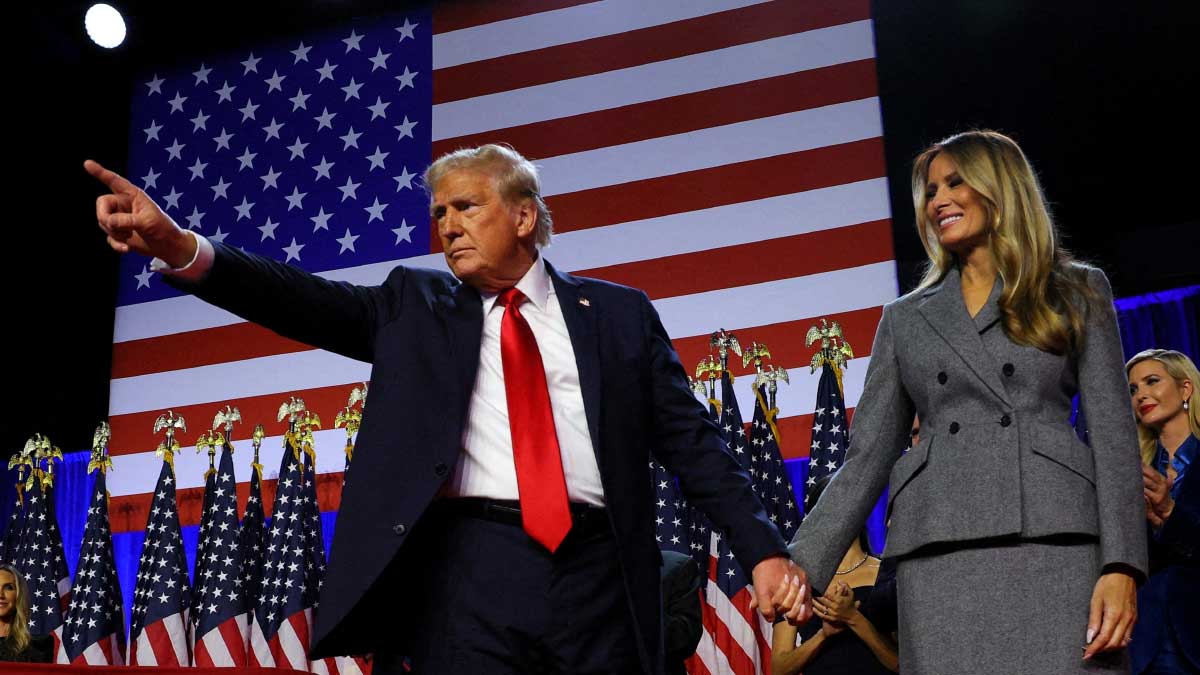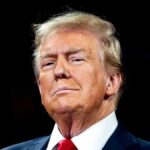- Home
- Billionaires
- Investing Newsletters
- 193CC 1000
- Article Layout 2
- Article Layout 3
- Article Layout 4
- Article Layout 5
- Article Layout 6
- Article Layout 7
- Article Layout 8
- Article Layout 9
- Article Layout 10
- Article Layout 11
- Article Layout 12
- Article Layout 13
- Article Layout 14
- Article Sidebar
- Post Format
- pages
- Archive Layouts
- Post Gallery
- Post Video Background
- Post Review
- Sponsored Post
- Leadership
- Business
- Money
- Small Business
- Innovation
- Shop
Recent Posts
Trump’s Agenda47: Policies for His New Term

Former President Donald Trump is set to take office in January after a successful election, with many of his policies expected to align with his Agenda47 platform, a plan first introduced during the 2022 primary elections. While specifics may evolve, his agenda already outlines a strong push for changes across various sectors. The Agenda47 platform, developed over the past year, encompasses a range of proposals that include stricter education guidelines, more hardline immigration policies, and potentially expansive projects like establishing “freedom cities.” Although some items on the agenda would require congressional approval, others could be enacted through executive orders, allowing Trump to swiftly implement certain aspects without legislative hurdles.
In the realm of education, Trump’s agenda calls for bold changes to K-12 schools, including policies like allowing parents to elect school principals and cutting federal funds for schools that teach topics he labels as “critical race theory.” He proposes an overhaul of the credentialing process for teachers, emphasizing the certification of educators who “embrace patriotic values.” Other policies in this sector include supporting school choice, encouraging prayer in schools, and easing restrictions on removing disruptive students. For universities, Trump has advocated for new accreditation standards that align with conservative values and proposed substantial fines for institutions that “discriminate” against students based on conservative views. Revenue from these fines would fund a free online institution, the “American Academy,” intended to cover a wide array of subjects.
Trump’s stance on climate and environmental issues includes leaving the Paris Climate Accord, repealing President Joe Biden’s emission reduction goals, and massively increasing domestic oil and gas production. He has also proposed re-energizing the fossil fuel industry to offset the electric vehicle targets set for 2032. Within the Department of Justice, Trump plans to appoint attorneys who align with his views, establish a task force on “protecting the right to self-defense,” and fight against what he perceives as anti-conservative biases in law schools and firms.
Crime and law enforcement policy under Agenda47 includes substantial support for hiring and retaining police officers, with a particular focus on protecting officers from liability in the line of duty. Trump advocates for policies such as “stop and frisk,” intends to deploy federal troops when local law enforcement does not act, and supports the death penalty for drug dealers and human traffickers. His immigration plans are similarly stringent, proposing to end birthright citizenship for children of undocumented immigrants, reinstate travel bans from certain countries, halt asylum programs, and close borders to refugees. He also plans to cut federal funding for sanctuary cities and end the “catch-and-release” policy, with an overarching goal of strengthening immigration laws and border security.
On the economic front, Trump’s plans involve reducing taxes, cutting federal regulations, and introducing tariffs on foreign goods to stimulate American manufacturing. For healthcare, he suggests that federal agencies prioritize purchasing drugs and medical devices produced domestically, and aims to control drug prices by establishing a “best price” mandate for pharmaceutical companies. Foreign policy initiatives under Agenda47 focus on reducing U.S. involvement in foreign conflicts and shifting the financial burden onto European allies. His stance on China includes restrictions on Chinese-owned infrastructure in the U.S. and bolstering missile defense systems.
Trump’s position on social security diverges from traditional GOP views, pledging to protect Social Security and Medicare from any cuts. Addressing homelessness, he intends to collaborate with states to ban public camping by homeless individuals, offering either treatment or arrest as alternatives, while constructing “tent cities” equipped with medical and social services. On transgender rights, Trump has taken a hardline approach, including removing federal funding from schools that promote gender diversity or affirm transgender identities. His administration would limit gender to male and female as assigned at birth, and would strip Medicare and Medicaid payments from healthcare providers offering gender-affirming care to minors.
In response to concerns around technology companies, Trump proposes an executive order to prevent federal departments from working with outside groups to censor information. He seeks to modify Section 230, which currently protects social media platforms from certain legal liabilities, in order to open them to increased legal accountability.
Currently, the “platform” section of Trump’s campaign website lists a condensed set of priorities in line with the Republican National Committee’s formal platform, which overlaps with Agenda47’s proposals. These priorities include securing borders, promoting manufacturing, lowering taxes, and increasing energy production. Despite this streamlined version, links to the more detailed Agenda47 proposals remain accessible online, providing further insight into his full policy ambitions.
Agenda47 differs from the “Project 2025” policy framework developed by the Heritage Foundation, though both aim to shift the government’s priorities along conservative lines. While Agenda47 is directly tied to Trump’s campaign, Project 2025 serves as an extensive blueprint that includes policies Trump may choose to adopt. Although Trump has distanced himself from Project 2025, he has praised the Heritage Foundation’s influence on conservative policy, leaving open the possibility that some elements from Project 2025 could find a place in his administration.
Many elements of Agenda47 and Project 2025 will likely need congressional approval to be enacted, but both platforms advocate for expanding executive power, especially in reining in federal agencies. One proposal is to revive an executive order from Trump’s 2020 term, which allowed for the replacement of career civil servants with political appointees, a measure aimed at curtailing what he describes as the “Deep State.” Additionally, Trump suggests forming a “Truth and Reconciliation Commission” to address alleged corruption within federal agencies.
Since December 2023, Trump has added new policy ideas outside the original Agenda47, such as delegating abortion rights to the states, supporting mass deportations of undocumented immigrants, and proposing to eliminate income taxes on tips for service workers. He has also pledged to end double taxation for Americans abroad and allow tax deductions on car loan interest. Trump has expressed intent to prosecute individuals he accuses of voter fraud, including election officials and political operatives.
While some of Trump’s agenda may appeal to conservative voters, the exact policies he will prioritize remain uncertain. Although he has shown signs of moderation on select issues, such as abortion, his overall policy direction will become clearer as he moves back into office. Among the more surprising Agenda47 proposals is the concept of “freedom cities,” which would involve constructing new urban centers on federal land. These cities, each the size of Washington, D.C., would incorporate innovative technology such as vertical takeoff and landing vehicles and aim to combat declining birth rates through financial incentives like “baby bonuses.”
The Associated Press declared Trump the winner after victories in key states like Georgia, North Carolina, and Pennsylvania. As Trump prepares to resume office, Agenda47 and the Project 2025 proposals have come under heightened scrutiny. Democrats have voiced concerns over both platforms, emphasizing the far-reaching impacts these policies could have, while Biden faces continued challenges related to age and policy from his own base.
Recent Posts
Categories
- 193cc Digital Assets2
- 5G1
- Aerospace & Defense46
- AI37
- Arts3
- Banking & Insurance11
- Big Data3
- Billionaires446
- Boats & Planes1
- Business328
- Careers13
- Cars & Bikes76
- CEO Network1
- CFO Network17
- CHRO Network1
- CIO Network1
- Cloud10
- CMO Network18
- Commercial Real Estate7
- Consultant1
- Consumer Tech180
- CxO1
- Cybersecurity68
- Dining1
- Diversity, Equity & Inclusion4
- Education7
- Energy8
- Enterprise Tech29
- Events11
- Fintech1
- Food & Drink2
- Franchises1
- Freelance1
- Future Of Work2
- Games141
- GIG1
- Healthcare78
- Hollywood & Entertainment186
- Houses1
- Innovation42
- Investing2
- Investing Newsletters4
- Leadership65
- Lifestyle11
- Manufacturing1
- Markets20
- Media193
- Mobile phone1
- Money13
- Personal Finance2
- Policy567
- Real Estate1
- Research6
- Retail1
- Retirement1
- Small Business1
- SportsMoney33
- Style & Beauty1
- Success Income1
- Taxes2
- Travel10
- Uncategorized8
- Vices1
- Watches & Jewelry2
- world's billionaires415
Related Articles
Trump Moves $4B Stake in Truth Social Parent, Stock Drops 6%
Donald Trump recently transferred his 57% stake in Trump Media & Technology...
By 193cc Agency CouncilDecember 20, 2024House Rejects Trump-Backed Funding Bill, Shutdown Looms
The U.S. House of Representatives rejected a new government funding bill on...
By 193cc Agency CouncilDecember 20, 2024Trump Named Time’s Person of the Year for Second Time
On Thursday, Time magazine honored Donald Trump as its “Person of the...
By 193cc Agency CouncilDecember 12, 2024Meta Donates $1 Million to Trump’s Inaugural Fund
Meta, the parent company of Facebook and Instagram, has confirmed a $1...
By 193cc Agency CouncilDecember 12, 2024















Leave a comment